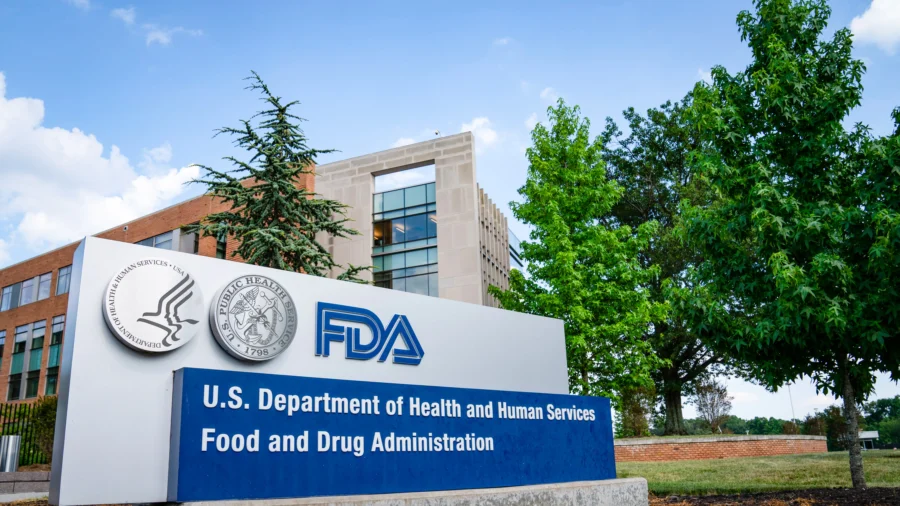Food products manufactured by Albertsons Companies are being pulled from the market after an ingredient supplier reported potential bacterial contamination.
Idaho-based Albertsons is voluntarily withdrawing 12 types of ReadyMeals and store-made deli items, including tacos, enchiladas, and salads according to an Oct. 19 announcement by the U.S. Food and Drug Administration (FDA).
“The recall was initiated because these products contain a recalled ready-to-eat chicken ingredient supplied by BrucePac of Durant, Okla., which was found to be contaminated with Listeria monocytogenes during routine tests by the U.S. Department of Agriculture’s Food Safety and Inspection Service.”
BrucePac had withdrawn almost 10 million pounds of ready-to-eat meat and poultry on Oct. 9 citing contamination risks. It was later expanded to 12 million pounds.
The items involved in the Albertsons recall were available across 11 stores—Albertsons, Carrs-Safeway, Eagle, Jewel-Osco, Pavilions, Randalls, Safeway, Shaw’s, Star Market, Tom Thumb, and Vons.
These stores are located across 21 states—Alaska, Arizona, Arkansas, California, Idaho, Illinois, Indiana, Iowa, Louisiana, Maine, Massachusetts, Nevada, New Hampshire, New Mexico, Rhode Island, South Dakota, Texas, Utah, Vermont, Washington, and Wyoming.
The announcement warned that Listeria “can cause serious and sometimes fatal infections in young children, frail or elderly people, and others with weakened immune systems,” the announcement said.
“Although healthy individuals may suffer only short-term symptoms such as high fever, severe headache, stiffness, nausea, abdominal pain, and diarrhea, Listeria infection can cause miscarriages and stillbirths among pregnant women.”
Those at higher risk may experience flu-like symptoms within two months of eating contaminated food. If so, they should seek medical attention and inform the doctor about consuming the contaminated item.
The firm asked consumers who have already bought recalled products to dispose of the items or return them for refund. People who have further questions can contact the firm at 1-877-723-3929.
Hard-to-Kill Bacteria
Several other companies have pulled foods in the aftermath of the BrucePac contamination risk.
On Oct. 18, Dakota Tom’s Sandwiches voluntarily recalled its Bacon Cheeseburger, The Gambler, and Pepperjack Cheeseburger products.
The sandwiches were distributed across convenience stores and grocery shops in South Dakota, North Dakota, Minnesota, Iowa, and Wyoming. The company has stopped using ingredients from BrucePac’s impacted facility.
A few days earlier, Oregon-based Reser’s Fine Foods recalled certain batches of meal kits because the products contained chicken withdrawn by BrucePac.
The recalled items include enchiladas, tacos, and quesadillas sold under the brand name Don Pancho as well as burrito bowls, tacos, and quesadillas sold with the Bistro 28 brand name. As with Dakota Tom’s Sandwiches, Reser’s has stopped using ingredients from BrucePac’s affected facility.
Listeria infection is the third leading cause of death in the United States from foodborne illness, according to the U.S. Centers for Disease Control and Prevention (CDC). The agency estimates there are 1,600 listeria infections annually with 260 deaths.
Marwan Azar, MD, an infectious diseases expert, explains that listeria bacteria is hard to kill, as the pathogen hides inside cells of the infected human being, according to a Sept. 13 post by Yale Medicine.
“By hiding inside the cells, the bacteria escape many of the immune system’s approaches to eradicating it and preventing it from multiplying,” he said.
The bacteria is capable of surviving freezing and other food preservation techniques, and the pathogen may even multiply in these conditions.
Listeria can cause serious issues, especially among vulnerable groups like pregnant women, individuals with weak immune systems, and older people. “The most feared manifestation is a central nervous system infection, such as meningitis or encephalitis,” Azar noted.
Meningitis is an inflammation of the membrane that protects the spinal cord and the brain, while encephalitis is inflammation of brain tissue.
Symptoms of listeria affecting the central nervous system include fatigue, stiff neck, light sensitivity, balancing issues, confusion, headaches, and convulsions, Dr. Azar said.
Not everyone who eats contaminated food will get sick with listeriosis, he said. Symptoms usually show up later, typically in a week or two, but they could come in a few days or appear three months later.
From The Epoch Times

